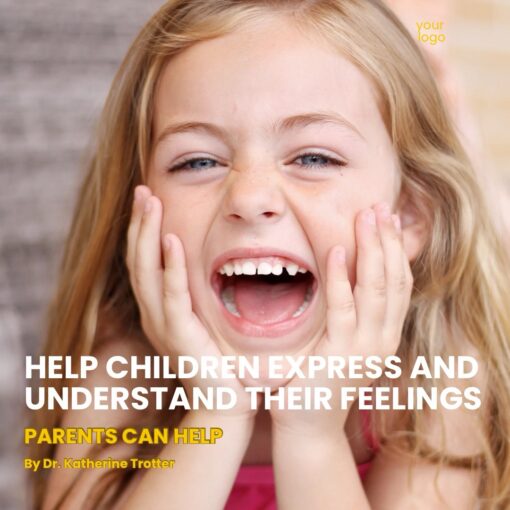 As parents, we understand how important it is to support our children in learning how to cope with emotional situations. We know expressing and understanding our feelings can be challenging, especially for children. That’s why it’s crucial to teach our children positive coping skills such as stress reduction and relaxation, which can help them manage difficult situations in the present and future. We also understand that such skills can reduce anxiety and behavior problems while enhancing self-control, self-confidence, and positive interpersonal relationships.
As parents, we understand how important it is to support our children in learning how to cope with emotional situations. We know expressing and understanding our feelings can be challenging, especially for children. That’s why it’s crucial to teach our children positive coping skills such as stress reduction and relaxation, which can help them manage difficult situations in the present and future. We also understand that such skills can reduce anxiety and behavior problems while enhancing self-control, self-confidence, and positive interpersonal relationships.
In order to help our children manage their stress, we need to be able to recognize when they are experiencing it. Stress can manifest in various ways, including through physical, behavioral, and cognitive symptoms. Some physical signs of stress include changes in appetite, nightmares, sleep disturbances, and other physical symptoms that are not related to any illness. Emotional signs of stress may include anxiety, clinginess, new or recurring fears, and reluctance to participate in activities. By helping our children identify these signs, we can guide them toward activities that help alleviate stress and promote relaxation
We know that deep breathing and progressive muscle relaxation are highly effective ways to decrease stress. By encouraging our children to breathe in deeply and breathe out slowly, we can help them reduce stress and anxiety. Similarly, progressive muscle relaxation can help them relieve muscle tension and calm their minds.
Getting enough sleep is crucial for physical and mental health, especially for children. However, high levels of stress can cause disruptions in sleep patterns. To help your child build and maintain a consistent sleep routine, I suggest keeping consistent bedtimes and avoiding screen time for at least 30 minutes before bed. Additionally, encouraging plenty of physical and outdoor activity during the day can help your child’s body be ready for sleep at night.
The amount of sleep children need varies by age, but general guidelines from the CDC recommend the following:
– Toddlers aged 1-2 years old should sleep 11-14 hours per 24 hours (including naps).
– Preschoolers aged 3-5 years old should sleep 10-13 hours.
– Children aged 6-12 years old should sleep 9-12 hours.
– Teenagers should sleep 8-10 hours
As parents, it’s our responsibility to create a safe environment where our children feel comfortable talking about their emotions. By doing so, we can help them develop the skills they need to manage stress and emotions, which will serve them well throughout their lives. Our children are the future, and we must do everything we can to support them in their emotional development. It’s important to stay attuned to our children’s feelings and find ways to help them express and understand their emotions. With our guidance and support, they will develop the emotional intelligence they need to navigate life’s challenges and become resilient, compassionate adults.
It is important to be aware of when it is necessary to seek professional help or support for your child’s stress. If your child is experiencing stress for a prolonged period of time or if it is becoming too overwhelming, it may be necessary to reach out to a specialist. The negative impact that prolonged stress or overwhelming feelings can have on your child’s mental and physical health cannot be ignored. In such cases, it is best to connect with a specialist who can help your child cope with stress in a healthy manner. Always remember that taking action for your child’s well-being is a critical part of being a parent.
“Each of us is a vital thread in the tapestry of each other. We are woven together for a reason”
